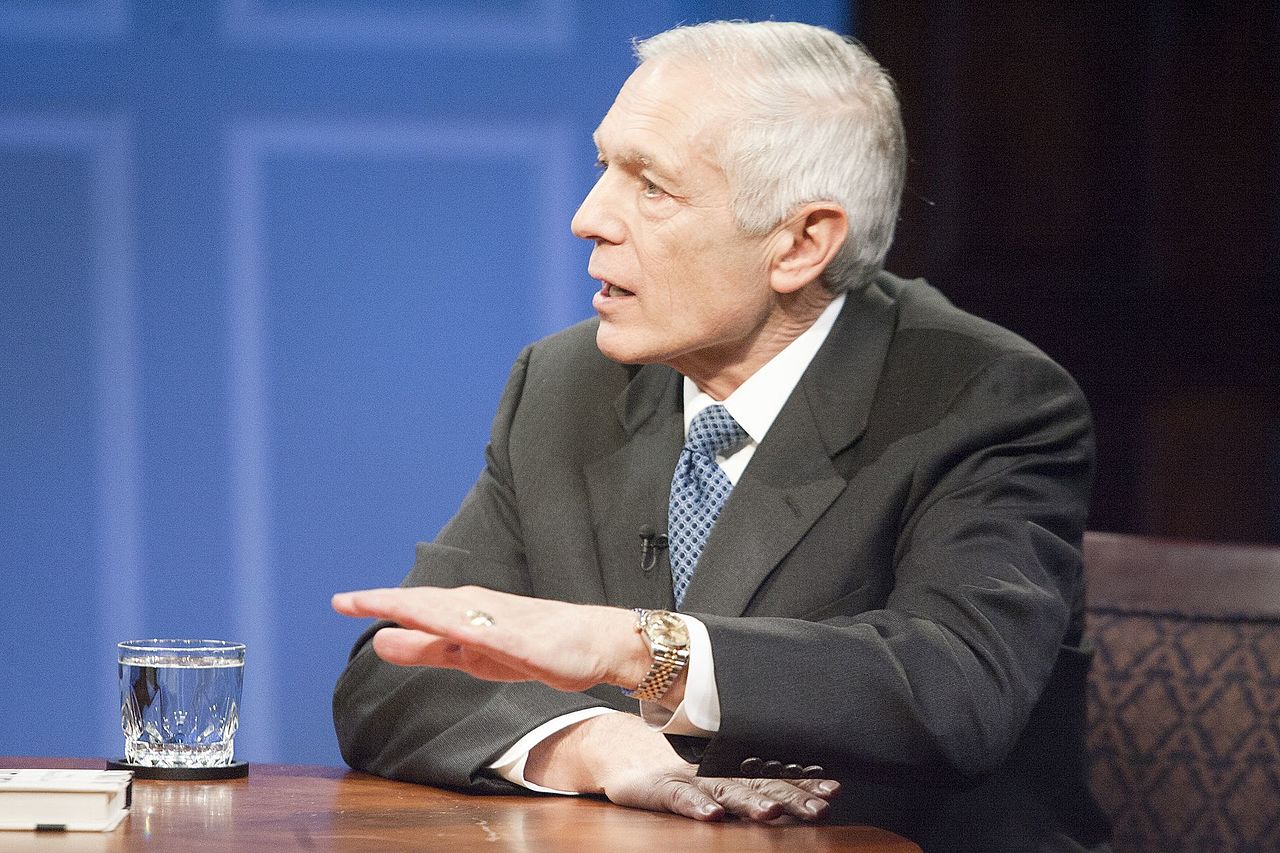
Photo: A Syrian refugee camp outside Athens, Greece. Millions of Syrians have fled their country since conflict erupted a decade ago – with climate change being among the reasons exacerbating tensions across the nation, say many experts.
In March 2021, three Russian submarines broke through old ice in the Arctic. According to retired four-star general and 2004 U.S. presidential candidate Wesley Clark, we should be paying attention to this from more than solely a national security perspective: Climate change and national security are inextricably linked, and have significant implications not just for physical security, but long-term financial security as well.
Security concerns are not new, but pressure is increasing as impacts worsen
In 2012, the American Security Project, a bipartisan nonprofit led by political, military and corporate leaders, released the Climate Security Report, which concluded that climate change is one of the most significant challenges facing global security systems. Since then, the U.S. Department of Defense (DOD) has in many instances been at the forefront of taking action, in particular at its installations, which face threats from floods, wildfires, and hurricanes.
DOD also recently announced a department-wide initiative to look at climate adaptation and resilience. In addition to resilience needs to upgrade installations to be more sustainable and efficient, deploying clean energy and water efficient technologies on such a large scale can help improve market efficiencies and spur innovation.
But national security challenges go far beyond clean technology installations. As the effects of climate change intensify, leaders often call the military to deal with the consequences, from state national guard members deploying during hurricanes to changing climate patterns impacts on operational capabilities to numerous hotspots around the world. “Russia doesn’t need to drive through Arctic ice,” General Clark told TriplePundit, “but the fact that it can signals something significant relating to climate change. Arctic caps are the weather makers of the world. Their weakening is critical to our national security.”
The financial implications related to climate change
Further, as hotspots multiply, the links to financial systems become increasingly clear. General Clark noted that the U.S. dollar is now our principal national security lever through sanctions. But now, direct defense dollars are funding aid to humanitarian crises as well as to intervene in conflict situations worldwide.
For example, though climate change is not the only cause, evidence indicates that the conflict in Syria was exacerbated by water scarcity and food insecurity. This is what’s known as a threat multiplier: Only one is enough to throw fuel onto an already smoldering fire.
General Clark and his son, Wes Clark, Jr., are the focus in a documentary, Hot Money, which points out the links between finance and climate change, a connection they say we didn’t fully understand even a few years ago. “None of this occurs in a vacuum,” Wes Clark, Jr. told 3p. “Any small changes have repercussions. Climate change affects investments, real estate, individual’s personal wealth. Our short-term approach to everything has long-term impacts.”

Taking action on climate change in a business-as-usual manner is putting our financial system at risk. And it’s a circular argument: It can be difficult to make the case to change how we approach this complex problem to people, government and companies that have been successful under the old system. But the point is that the old system will not continue to work as it has in the past. And climate change requires both public and private investments and leadership.
Policies must reflect a 21st-century world and its risks
Smart policies can enable necessary private investments and technological innovation. And while regulations can gum up projects, they can also ease them, if developed thoughtfully. For example, more streamlined permitting could allow the latest technologies to be deployed in a timelier manner.
For example, a few years ago, 3p's Leon Kaye and I traveled to Israel and met with officials at the Sorek Desalination Plant, the largest and one of the most efficient, cutting-edge desal facilities in the world. The same company that built Sorek also built the Carlsbad desal facility in California. The difference was that because of the national prioritization of water in Israel, the permitting process had been streamlined, allowing the latest technologies to be deployed. In California, however, by the time the Carlsbad facility was built, it was using technology that was over a decade old. The high energy demands of desal means access to the most efficient technologies is critical.
More nimble regulations are necessary to adequately handle the needs of transitioning to a cleaner economy to address climate change. “Standard project management practices slow everything down,” Wes Clark, Jr. told 3p. As a renewable power developer, he has seen firsthand the challenges to onboarding new technologies. Some regulations are state-based and vary widely, and that’s compounded by the challenges with federal regulations and (mostly) privately-owned electric utilities. The system as its set up is inefficient, both financially and environmentally.
The solution, according to General Clark, is that public rallying must score the attention of both policymakers and the private sector. The bottom line is that climate can have an impact on every facet of every life, and there is no workaround to addressing climate change as such. Finance and investing already feel the heat from climate change impacts. A policy solution is not enough without also a private investment solution. “We’re living off the dividends of a system we built a century ago,” noted Wes Clark, Jr. “If we don’t reinvest, systems collapse over time.”
Whether those systems are in this country or in others, the global security implications of climate change will affect the bottom line. Like those Russian subs breaking through Arctic ice, public and private sector leaders need to break through the logjam to advance solutions in a 21st century world.
Image credit: Julie Ricard/Unsplash

Kate is a writer and policy wonk, with a focus on water, clean energy, climate change and environmental security. She spent over a decade running energy-water nexus and energy efficiency programs at Environmental Defense Fund as well as time at the U.S. Departments of Energy and Defense, U.S. Government Accountability Office, and state and federal legislatures. She serves as an Advisory Board member of CleanTX, which aims to accelerate the growth of the clean tech industry in Texas.














